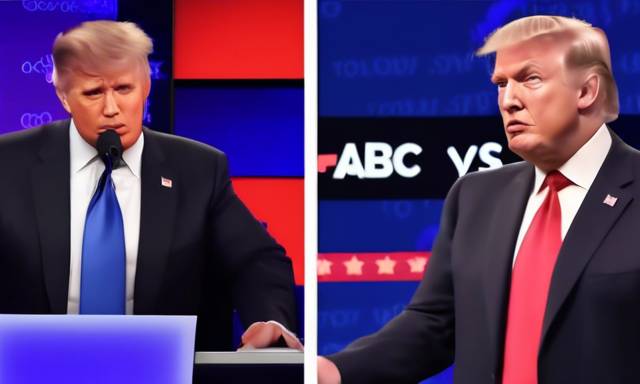Trump Stands Firm on Tariffs During ABC Debate 🔔
In a recent debate on ABC, former President Donald Trump reinforced his position regarding tariffs, emphasizing their significance to American trade policy and the economy. He highlighted the benefits that such measures bring to domestic industries and the importance of maintaining a robust manufacturing sector in the United States. During the discussion, Trump argued that tariffs serve as a vital tool in safeguarding American jobs and countering unfair trade practices, particularly from countries like China.
Key Points of Trump’s Argument on Tariffs 💬
Trump articulated several critical aspects regarding the implementation of tariffs, which he believes play a crucial role in fortifying the U.S. economy. Some of the main points he discussed include:
- Protection of American Jobs: He stressed that tariffs can protect American workers from foreign competition that undermines their wages and job security.
- Support for Domestic Manufacturers: Tariffs aim to create a more level playing field for U.S. manufacturers, allowing them to compete effectively against overseas companies.
- Addressing Trade Imbalances: According to Trump, imposing tariffs can help rectify trade imbalances, ensuring that the U.S. gains a fairer share in its trade relationships.
Specific Examples Discussed 🏭
In illustrating his points, Trump provided specific instances where he believes tariffs have made a positive impact on key American industries. He mentioned:
- Steel and Aluminum: Trump indicated that tariffs on steel and aluminum imports have revitalized these industries, resulting in job creation and increased production capacity.
- Agricultural Sector: The former President noted that farmers would benefit from tariffs as they can lead to improved market conditions and pricing for domestic agricultural products.
Counterarguments and Criticisms ⚖️
Despite his strong defense of tariffs, Trump faced criticism from his opponents during the debate. They argued that tariffs can lead to higher prices for consumers and may provoke retaliatory measures from trading partners. Some key counterpoints raised included:
- Impact on Consumers: Critics pointed out that increased tariffs could result in higher costs for everyday products, affecting consumers’ purchasing power.
- Retaliatory Tariffs: There are concerns that countries affected by U.S. tariffs may implement their own tariffs, harming American exports.
The Current Trade Landscape 🌍
This year, the trade climate remains a topic of contention in the U.S. political sphere. As the nation seeks to navigate complex international relationships, discussions surrounding tariffs and trade policies will undoubtedly continue to feature prominently. Trump’s insistence on their effectiveness underlines the ongoing debate between protectionism and free trade approaches among various political factions.
Hot Take: What’s Next for U.S. Tariffs? 🔮
As the dialogue surrounding tariffs progresses, it’s clear that they will play a pivotal role in shaping future trade policies. Former President Trump’s defense of these measures resonates with a substantial segment of the population that prioritizes domestic job security and economic independence. The challenge lies in balancing the protective measures of tariffs with the potential drawbacks they may impose on consumers and global trade relations. The conversation around tariffs is likely to evolve as the economic landscape changes and new challenges arise.





 By
By
 By
By



 By
By